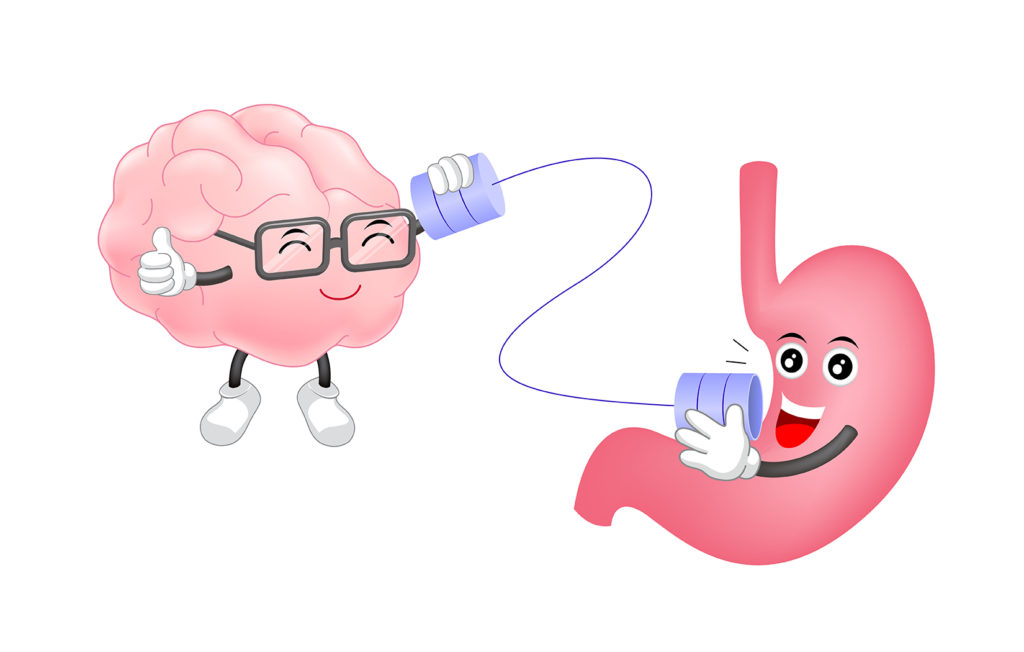
The Gut-Brain Connection: How Chronic Stress Leads to Acid Reflux
If you’ve ever mentioned a digestive complaint to a friend, you’ve probably been told you need to cut down the stress in your life on more than one occasion. Severe gut problems such as stomach ulcers often bring about this response, but stress is also commonly associated with acid reflux in this way. The question is; how exactly does stress lead to acid reflux and what is the connection between the two?
The Cleveland Clinic defines stress as “the body’s reaction to any change that requires an adjustment or response. The body reacts to these changes with physical, mental, and emotional responses.” It also notes that “chronic stress can wear down the body’s natural defenses leading to a variety of physical symptoms” which include indigestion or acid reflux symptoms.
Acid reflux itself occurs when the lower esophageal sphincter muscle is weakened and becomes loose, allowing stomach contents to leak through and travel back up the esophagus. Think of your LES like the lid placed on a saucepan of boiling water, if you take the lid off then it’s probably going to bubble over and you’ll get burned.
But can keeping a lid on your stress help you keep a lid on your acid reflux?
Most of the research in this area is on GERD, which is a more severe and chronic progression of acid reflux. Many of these studies have shown that anxiety can increase the symptoms of GERD but scientists differ on opinion regarding why this is the case. Research has failed to find a direct link between anxiety and an increase in stomach acid but researchers do believe a complex relationship exists between the two.
Another possible connection can be made in the area of lifestyle and diet which can be dramatically affected by stress and anxiety. In periods of stress, many people will change their diet and lifestyle habits and behaviors by eating fatty foods, drinking more alcohol, and smoking. These “comforting behaviors” will more likely trigger acid reflux symptoms such as heartburn and abdominal pain.
A recent study in 2018 of over 19,000 people revealed that GERD symptoms were more prevalent in those with anxiety. Researchers involved in the study had a few suggestions regarding why this was the case:
- Anxiety may reduce the pressure on the LES therefore allowing acid to leak into the esophagus.
- Chronic muscle tension from stress and anxiety may affect the stomach muscles which could increase pressure in this area and push acid upwards.
- Increased anxiety may also increase the production of stomach acid.
An interesting finding in this study was that people suffering from anxiety who had the same degree of acid reflux as those without anxiety rated their episodes more severely. This has led researchers in this study and many others to examine the “hypervigilance” associated with stress that may lead those with anxiety to be more aware of the physical symptoms of acid reflux than those who are not stressed.
It’s Not All In Your Head, But Your Head Isn’t Helping
A further study on the relationship between stress and symptoms of gastroesophageal reflux, stated that “stress did not influence objective measurements of acid reflux; however, chronic reflux patients who were chronically anxious and exposed to prolonged stressful stimuli may be more likely to perceive low-intensity esophageal stimuli as painful reflux symptoms.”
This backs up previous findings published in the Journal of Psychosomatic Research in which 40 patients with chronic heartburn and acid reflux participated. Researchers induced stress in half of the participants by asking them to prepare and deliver a short speech. Whilst acid levels in both groups were almost exactly the same, the “stressed” group reported more intense symptoms of reflux. This suggests that stress heightened their sensitivity to symptoms.
Experts are quick to note that these findings don’t suggest that suffering from stress-related acid reflux means it’s purely psychological. Some professionals believe that stress may trigger areas of the brain to make pain receptors more active. Although stress doesn’t directly affect levels of stomach acid, it can make it more painful.
Regardless of whether this is the case, the fact remains that if you feel pain then you’re in pain, and whether or not that pain is by amplified stress doesn’t make it any less significant.
Although stress may not be the direct cause of GERD and acid reflux, it is likely to exacerbate existing systems and the connection between the two is very real. Stress amplifies the pain response and you can experience worsening reflux symptoms as a result of stress without any change to your actual reflux severity. Learning how to manage your stress levels and anxiety can help you to treat your acid reflux and hopefully break the cycle to get your symptoms under control for good.

